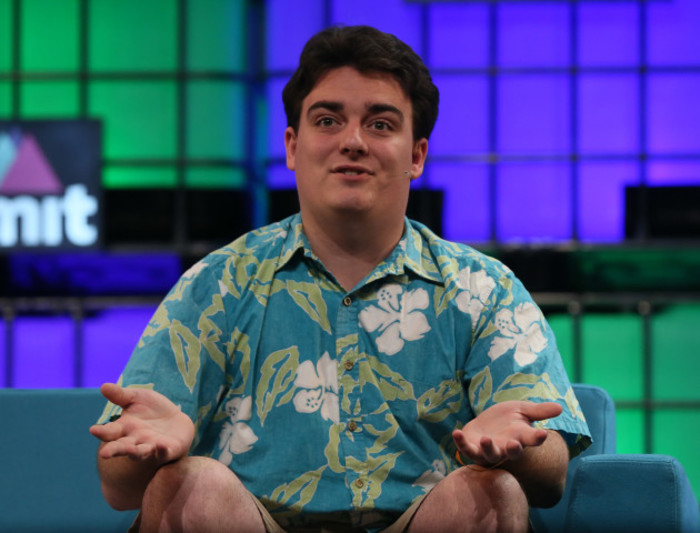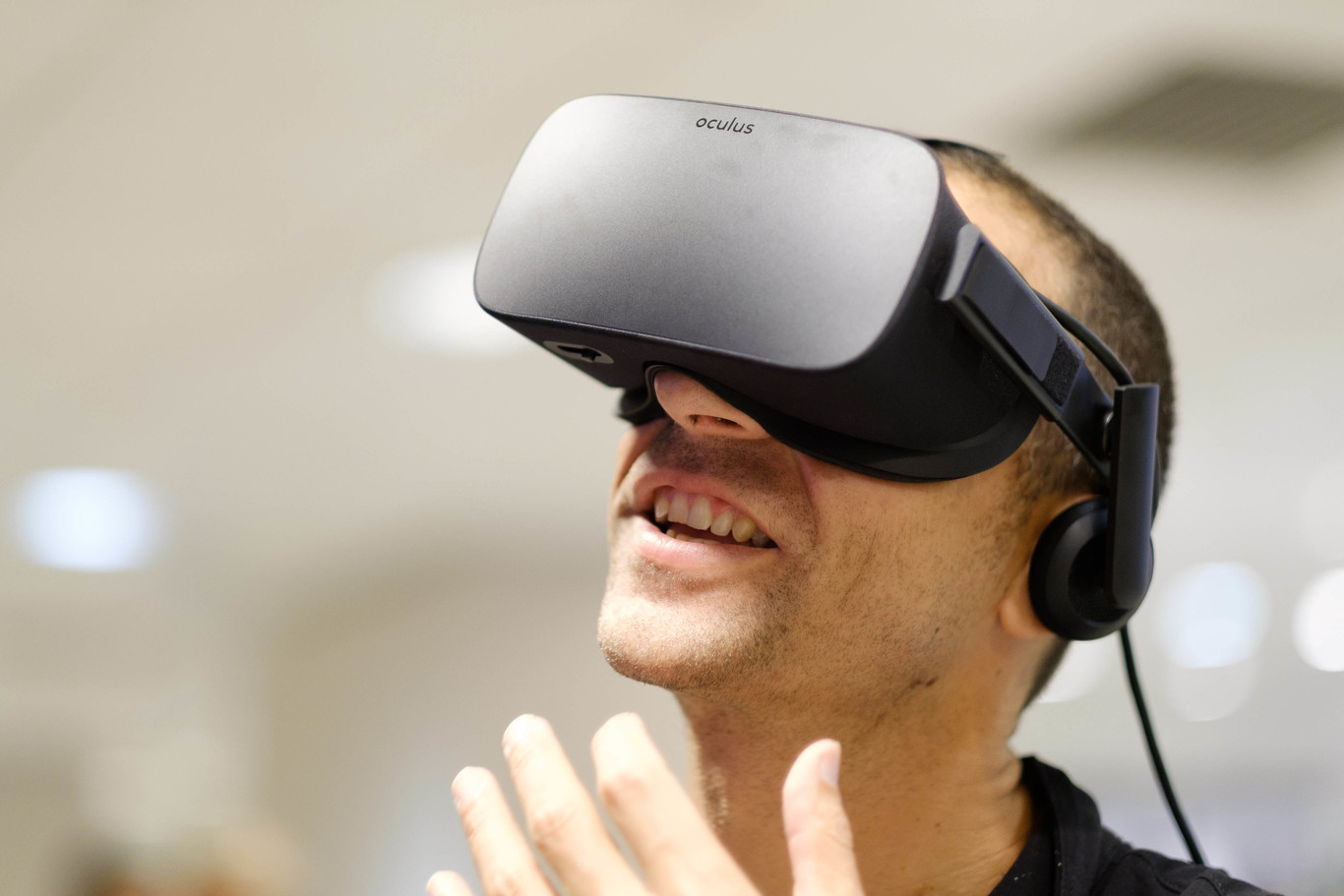Facebook-owned VR pioneer Oculus has bought a six-year-old Cork startup
InfiniLED’s super-efficient display technology could make its way into the next generation of headsets.
FACEBOOK-OWNED VIRTUAL reality firm Oculus has acquired Cork startup InfiniLED, which makes low-power displays.
The Tyndall National Institute spin-out was set up in 2010 to commercialise the work of Brian Corbett, whose research led to the development of super-efficient LEDs.
While the terms of the deal haven’t been disclosed, company records show InfiniLED first filed to be voluntarily wound up in August.
The deal clears the way for the Irish-developed technology to be integrated into Oculus’s VR flagship products such as its Rift headset.
Oculus was itself acquired by Facebook in 2014 for $2 billion in cash and shares only two years after it was set up by then 21-year-old college dropout Palmer Luckey and co-founder Brendan Iribe.
 Palmer Luckey at last year's Web Summit
Palmer Luckey at last year's Web Summit
Low power
InfiniLED says its technology, which incorporates arrays of tiny micro-LEDs, consumes up to 40 times less power than the technology used in regular mobile displays.
Increasing the efficiency of display clears the way for device manufacturers, like Oculus, to dramatically extend battery life, reduce the bulk of equipment and improve display brightness.
The deal comes as tech giants such as Google, Facebook and Samsung make major investments in VR, an industry which, together with augmented reality technology, is predicted to be worth more than $160 billion by 2020 as it enters the consumer mainstream.
InfiniLED has been led by Joe O’Keeffe, a Cork-based entrepreneur who specialises in turning Irish research into successful startups.
Its entire staff, which averaged 14 people during 2015, is expected to be transferred to Oculus’s workforce.
Tyndall CEO Kieran Drain said: ”It is exciting to see that Oculus, a vibrant and leading-edge company, appreciates both the technology and the strength of the ecosystem that the InfiniLED team sits in.
“A key impact of this acquisition will be to increase global awareness that Ireland has technology and research of this caliber, and we anticipate further interactions with companies looking to merge hardware and software in efficient solutions, particularly for new devices that advance consumer electronics and the industrial internet.”






